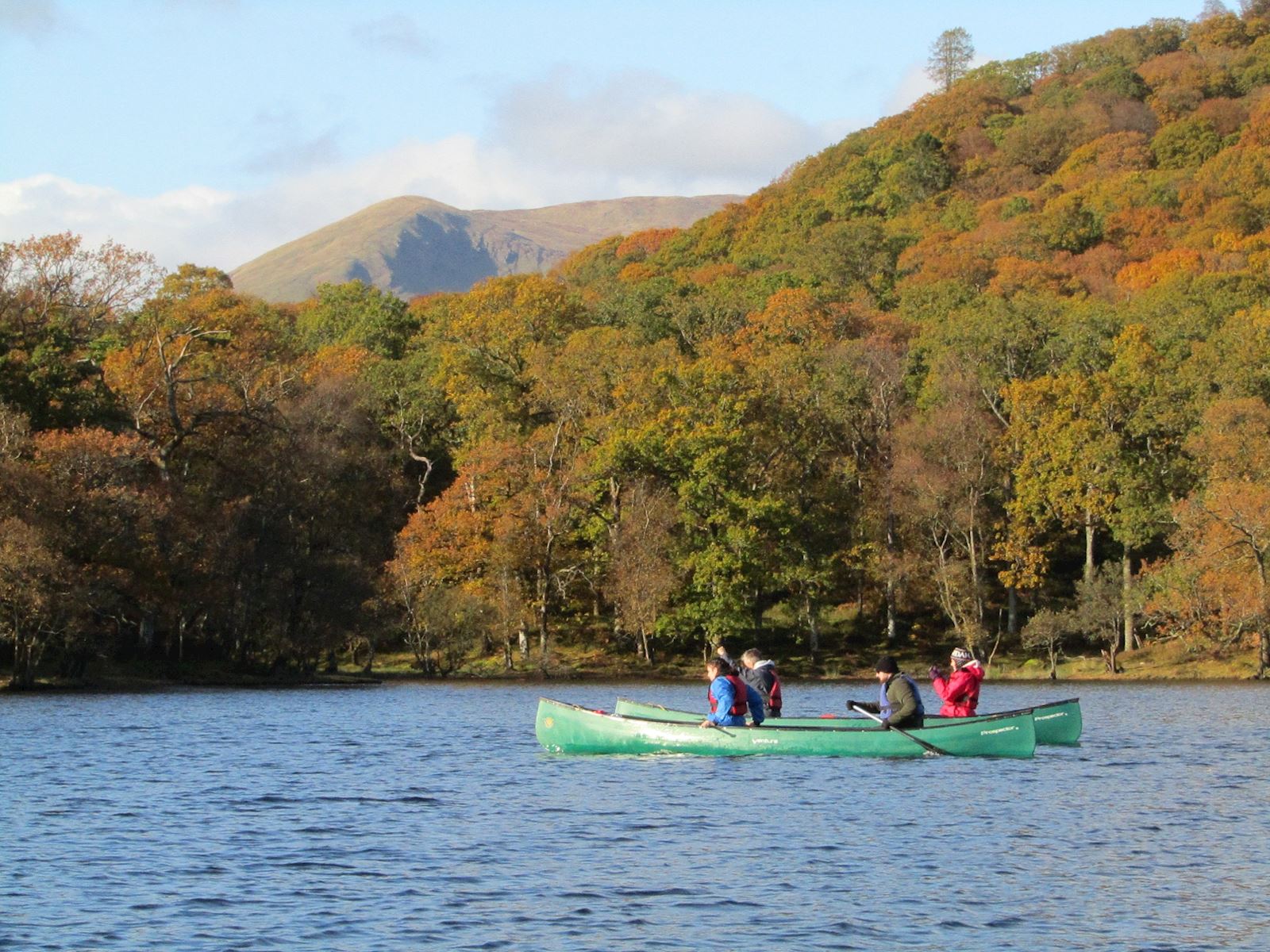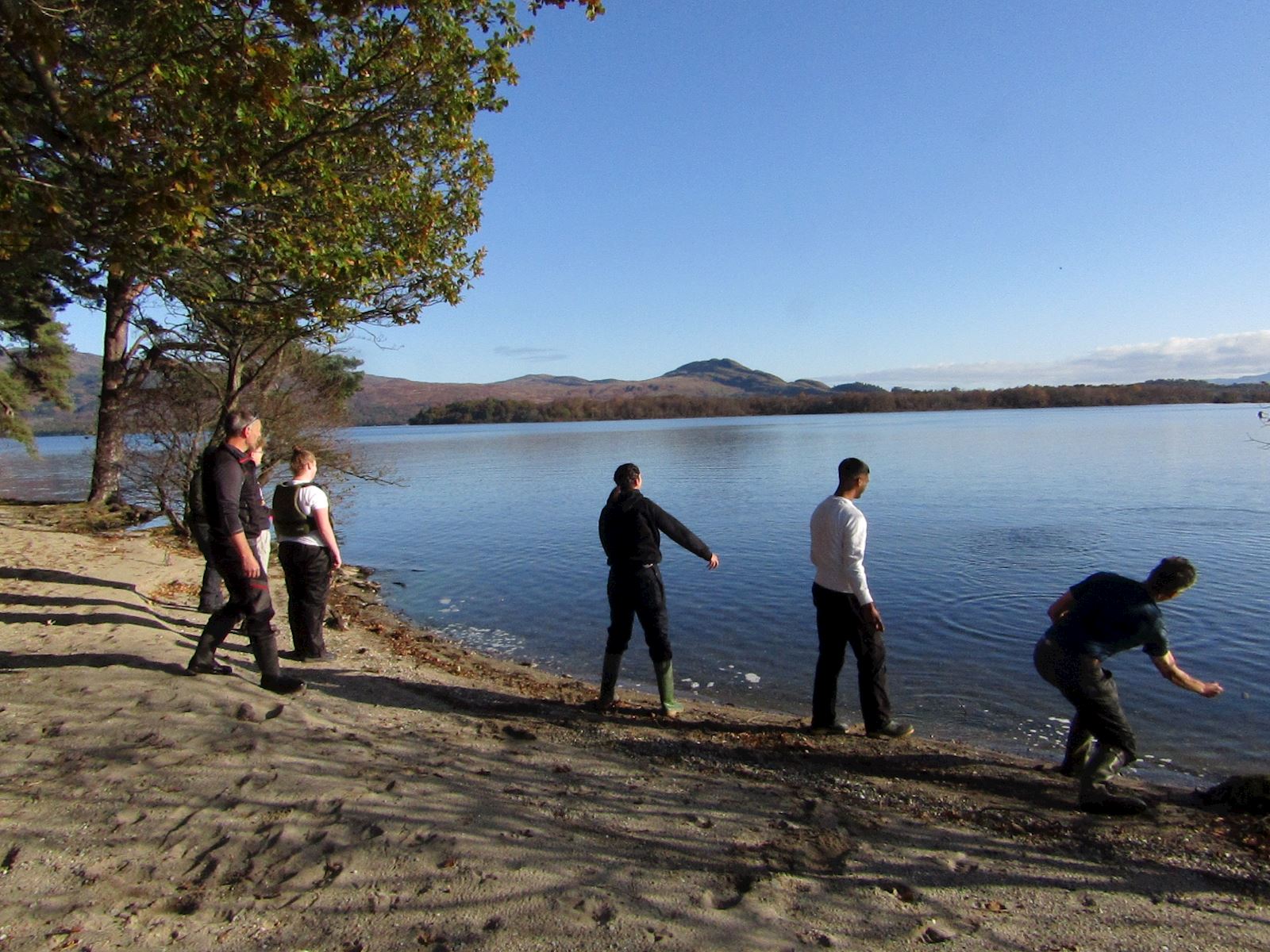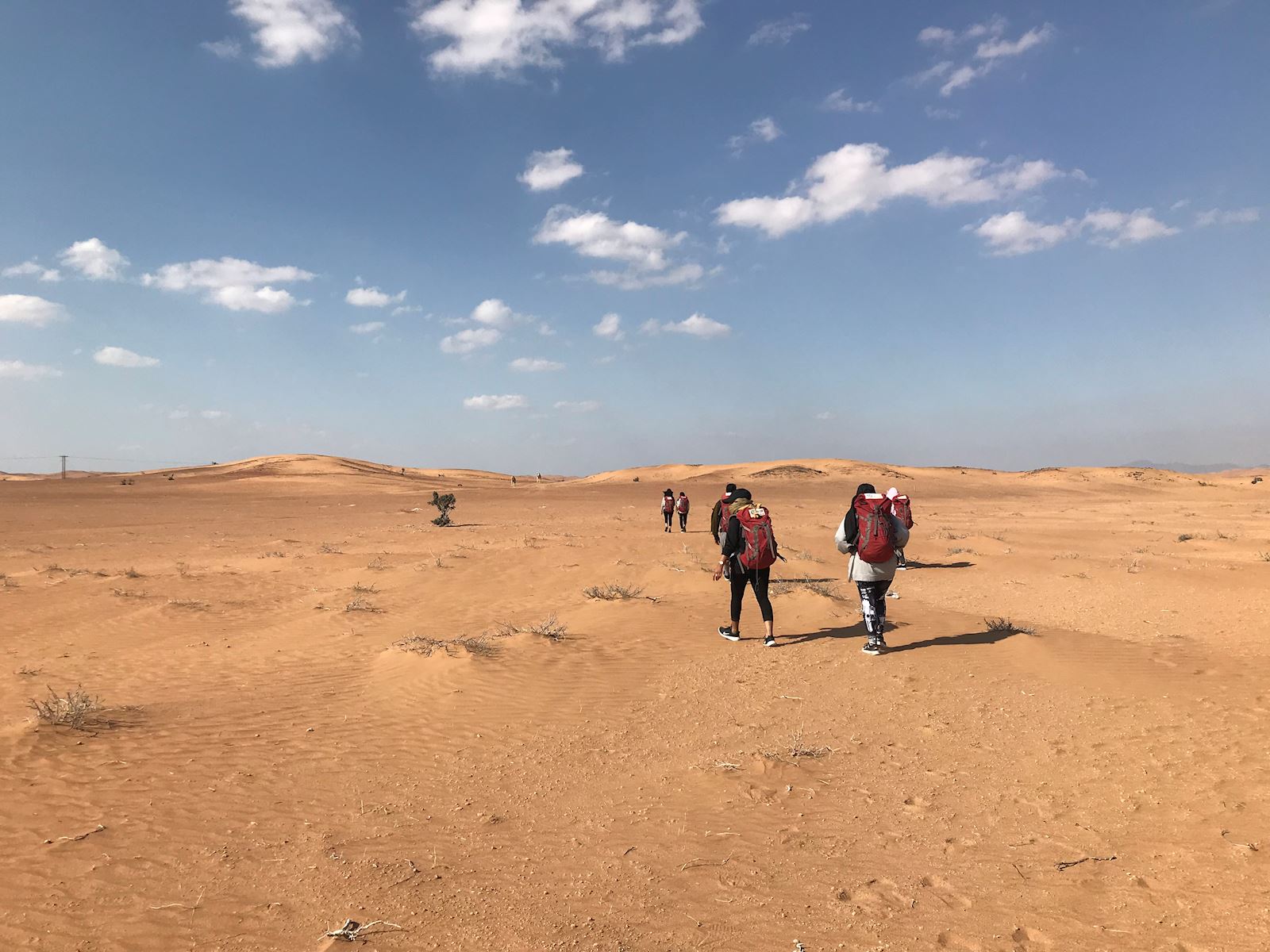Wilderness and Self-Discovery
Sokayna El Haddad
Learning & Adventure Manager, Outward Bound Oman
In the last 11 years, Outward Bound Oman (OBO) has influenced the lives of more than 16,000 young people in Oman, including many different disadvantaged segments of society. In addition to our widely successful Skills for Life and Next Generation courses targeting youth between 14 – 35 years old, we have been designing and delivering special programmes for young people who are mentally-challenged, hearing impaired, visually impaired, and autistic, as well as those recovering from drug dependencies.
As part of our constant effort to expand our reach to all groups in society, and in response to the growing need for programs that tackle the issue of mental wellbeing, we have collaborated with The Wilderness Foundation, a UK charity supported by the Royal Family, to design an outdoor course for young people in Oman suffering from mental health issues. This was inspired by a trip sponsored by The British Omani Society, one of Outward Bound Oman’s first partners. AOS enabled me to go to the UK and shadow one of the Wilderness Foundation’s Turn-Around programme trails. The trail took place from 27th October to 1st November 2019, starting with a long adventurous drive from WF’s headquarters in Chatham Green, all the way to Loch Lomond near Glasgow, Scotland. It was a huge privilege to be part of this course and get an insight into how things are done by a charity at the cutting edge of working with disadvantaged young people in the UK.

Having worked in outdoor education for over 6 years, I didn’t think there was much more I could learn about using nature for self-development. However, being around Jo Roberts (Executive Director of the Foundation) and her team certainly altered my perspective. She encouraged us to use everything we saw, heard and felt around us to reflect on ourselves, our past, our path and our plans, and I was deeply touched by the experience. It was clear that being outdoors brought out the best of the young people who participated on the course and allowed them to see the better version of what they and their lives could be.
The trail included a lot of canoeing in the cold clear waters of Loch Lomond, each time with a different partner. The only thing that was nicer than the one-on-one conversations that we had, and our group meetings in the middle of the Loch in our canoes to share inspiring quotes and check on each other’s mental, emotional and physical state, was the moments of silence that we enjoyed, taking in the beautiful scenery that was all around us. There were two unique canoeing experiences that we had on the trail. The first one was when we first arrived at the Loch at night and had to paddle to our campsite island, using only the moonlight to find our way. The other was when we decided to wake up before dawn and watch the sunrise from the middle of the Loch. Each day we canoed to a different island, on which we took time for guided reflection, did one-on-one sessions with the participants, and did some exploring; sometimes coming across wild animals such as wallabies and redneck deer, other times finding some old cabins or tombs.

When I reported this incredible experience back to OBO, Mark Evans, the Executive Director, insisted on flying Jo Roberts over to Oman to work with me on designing and leading our pilot mental wellbeing journey in Sharqiyah Desert of Oman.
Our pilot course was the outcome of active collaboration, not only with the Wilderness Foundation, but also with Her Highness Sayyida Basma Al Said, Dr Amira Al Raidan, Head of the Mental Health Unit at The Ministry of Education, and the Student Counselling Centre at Sultan Qaboos University, who worked hard to refer the right participants to us and ensure their safe enrolment on the course. As for the funding, the course was sponsored by BAE Systems who demonstrated a genuine willingness to support mental wellbeing in Oman through our courses.
We ran the pilot course for ten Omani participants in Sharqiyah Desert, where two years ago His Majesty Sultan Haitham bin Tariq opened our first purpose-built national training centre, funded by the late His Majesty Sultan Qaboos bin Said. We cannot say that we exactly followed the plan that Jo and the OBO team of Sultan Al Hasni, Abdulrahman Al Rahbi and I had prepared beforehand. This might’ve had something to do with the unexpected windy weather on the first day, but the key factor for not following the plan was that we hadn’t anticipated that the young people opening up and placing their trust in us and each other so quickly. We spent 3 uninterrupted days away from civilisation and technology immersing in the powerful learning environment that only the silent desert can offer.
On our first day, we had to go to our OBO Desert Centre to shelter ourselves from the strong winds and ease our participants into getting outside of their comfort zones. Everyone agreed to hand in their phones to allow themselves to be fully present in the moment. They all shared their hopes and fears about the experience and felt a great wave of reassurance that we were all there to support each other. The hike started the following day from a line drawn in the sand; but before crossing it, our participants all vowed to leave something bad behind (a feeling, a thought or a memory) and use the journey as a metaphor for all the positive things they want to embrace in their lives from then onwards. Everyone had roles in the team to ensure that we kept each other safe emotionally, mentally, and physically throughout the day, and everyone did a great job in doing so. The journey was not easy for everyone, but with the support, encouragement, and the prospect of a rewarding sense of achievement at the end of the journey, all the team made it to the campsite in one piece. The journey was rich in sharing personal values, aspirations, and coping mechanisms to face adversity through many activities and discussions that were led by Jo. We also made sure that we devoted some time for solo reflection to allow our participants to set some SMART (specific, measurable, achievable, relevant and time-bound) goals for themselves after they go back, and of course some, also to fun time around the fire for everyone to relax, chat, laugh and sing.

The feedback at the end of the course was extraordinary. Based on the end of course feedback, 90% of our participants said that they are more aware of their responsibility to care for the environment, 100% said that they are more committed to help themselves, and 100% said they are more able to cope with adversity in their lives.
The success of this experience has opened our eyes to the unique role we can play here in helping Muscat and Oman recover post-COVID. As soon as the lockdown eases, Outward Bound Oman is ready to give back to the community through this type of course, knowing that wilderness therapy will become more relevant than ever through the self-isolation that the community is currently experiencing as a result of the pandemic.